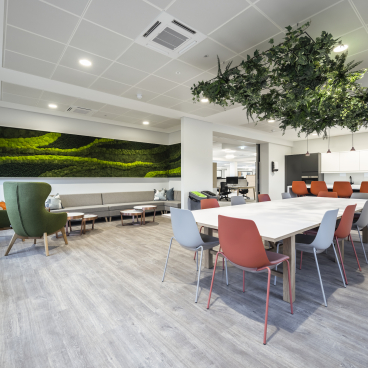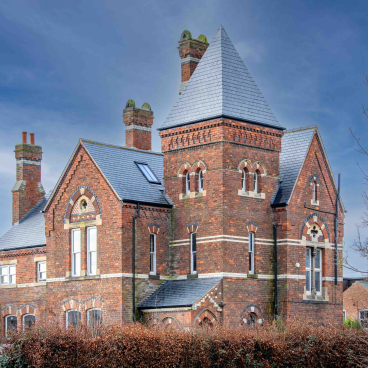The WaterAid Garden - an example of effective rainwater collection and resilient planting - wins gold medal at RHS Chelsea Flower Show.
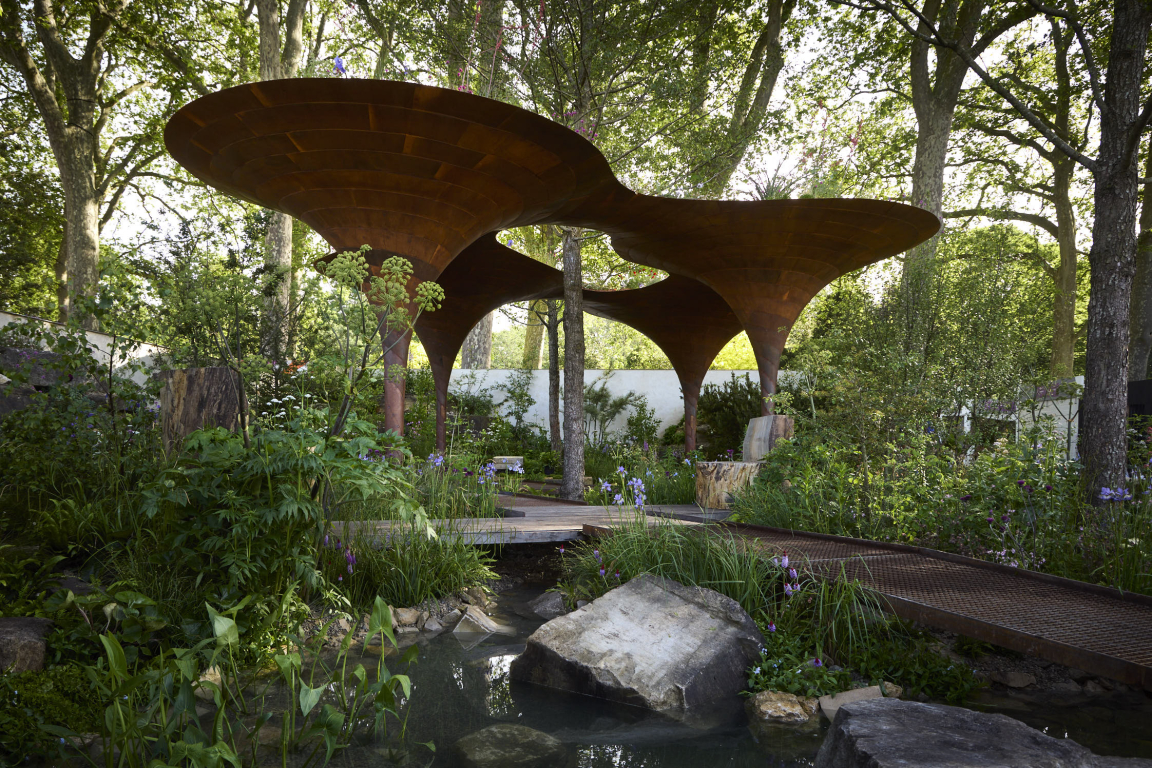
Tackling the challenges presented by an ever-changing climate, garden designer, Tom Massey and Je Ahn of Studio Weave have curated a vibrant and varied oasis of adaptive planting, with an overall focus on sustainable water management.
Achieving a gold medal at this year’s RHS Chelsea Flower Show, the showcased array of plant species have been specially selected to harness the power of varying amounts of rainfall, opting for material choices that are reclaimed and repurposed for a lighter carbon footprint. The WaterAid Garden combines Je Ahn’s architectural, art and public realm background with Tom Massey’s horticultural and landscape design expertise.
Collecting rain is one of the simplest forms of good quality water supply, but effective storage is often a challenge. WaterAid harnesses a range of simple, affordable rainwater collection methods to bring essential water supplies to households and schools in areas prone to water shortages or water contamination. Rooftop collection means water can be harvested near to home, so hours are not spent walking to collect water, and this technique has inspired the structure Je and Tom have designed for the WaterAid Garden, maximising the surface area for rain to be collected and stored.
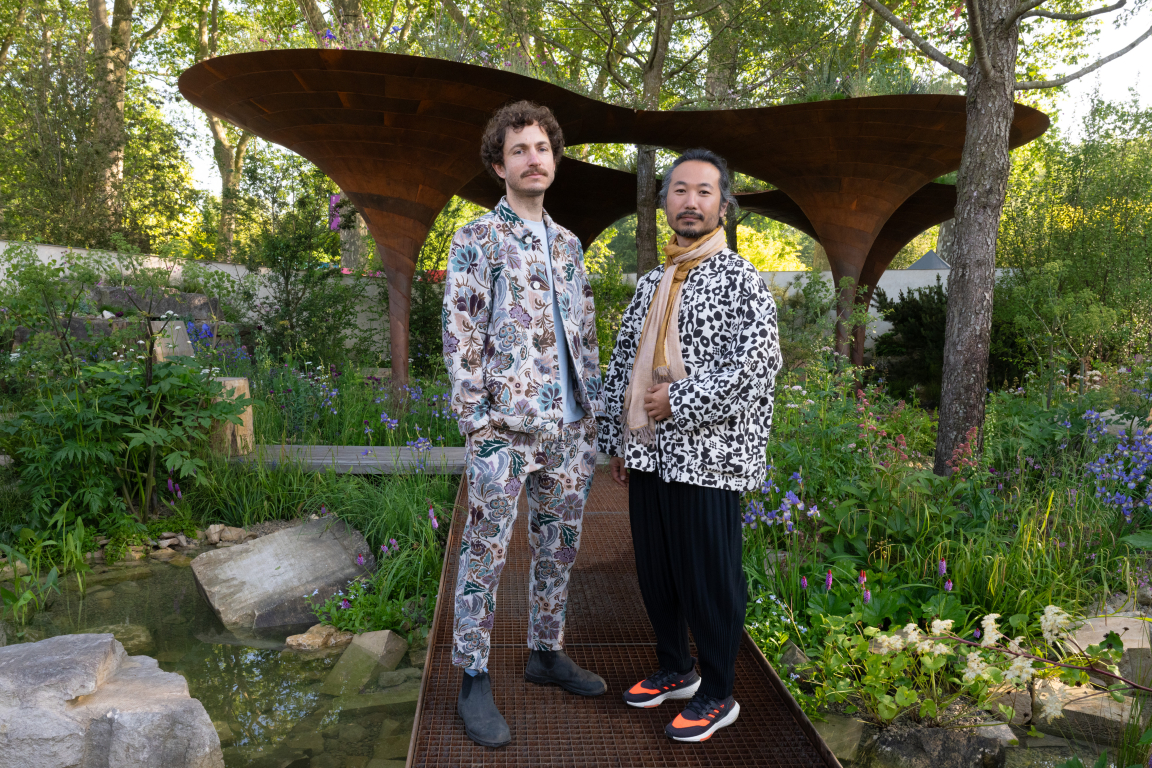
2024WaterAid Garden designers, Tom Massey, left and Je Ahn
Tim Wainwright, chief executive at WaterAid comments on the environmental focal points of the winning project, “We’re thrilled that The WaterAid Garden has been awarded a gold medal; it’s an amazing recognition of the beautiful, innovative design and the important message behind it – that water is precious, and we need to manage it sustainably to keep if flowing, whatever the weather.
“Almost one in ten people globally lack clean water, and climate change is making the situation worse as more frequent flooding contaminates fragile water sources, while longer droughts dry up springs. At WaterAid, we are supporting people living on the frontline of the climate crisis, helping to ensure a reliable supply of clean water, which enables communities to thrive. It is this work that has inspired our award-winning garden.”
The climate crisis is a water crisis, and 90% of all natural disasters are water-related, with more frequent and extreme floods polluting water sources and droughts drying up springs. The WaterAid Garden addresses the challenges presented by an ever-changing climate. It focuses on sustainable water management and features a colourful array of plant species designed to deal with varying amounts of rainfall, and materials that are reclaimed and repurposed for a lighter carbon footprint.
The centrepiece of the thought-provoking design is a rainwater-harvesting pavilion inspired by WaterAid’s work with communities around the world to develop sustainable water solutions. This structure efficiently harvests rainfall, filtering and storing this precious resource for drinking and irrigating whilst also slowing flow and providing shade.
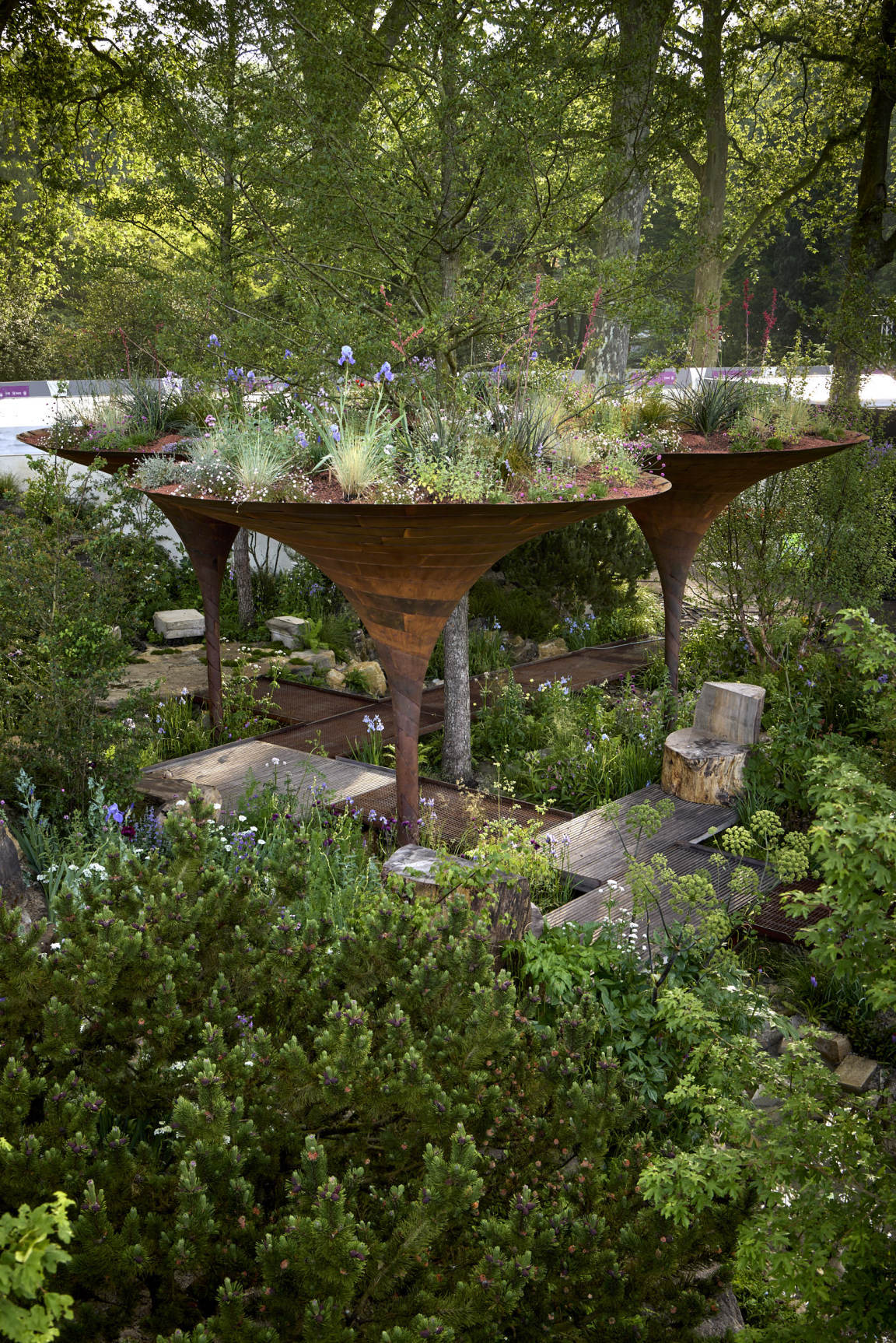
Co-designer Tom Massey, commented, “I’m absolutely delighted The WaterAid Garden has been awarded a gold medal. This has been an exciting and mammoth undertaking, creating a garden that not only looks striking, but demonstrates how clean water changes lives and how innovation can help us adapt to an unpredictable future. It’s been an amazing experience working alongside Je Ahn, WaterAid, Project Giving Back, the teams at Landscape Associates, Cake Industries, Hortus Loci and everyone else who has contributed to the garden.
“As our climate changes water scarcity and insecurity is becoming more commonplace – here in the UK and around the world. I hope everyone who visits the garden gains a real sense of the importance of sustainable water management and what’s possible when we all come together.”
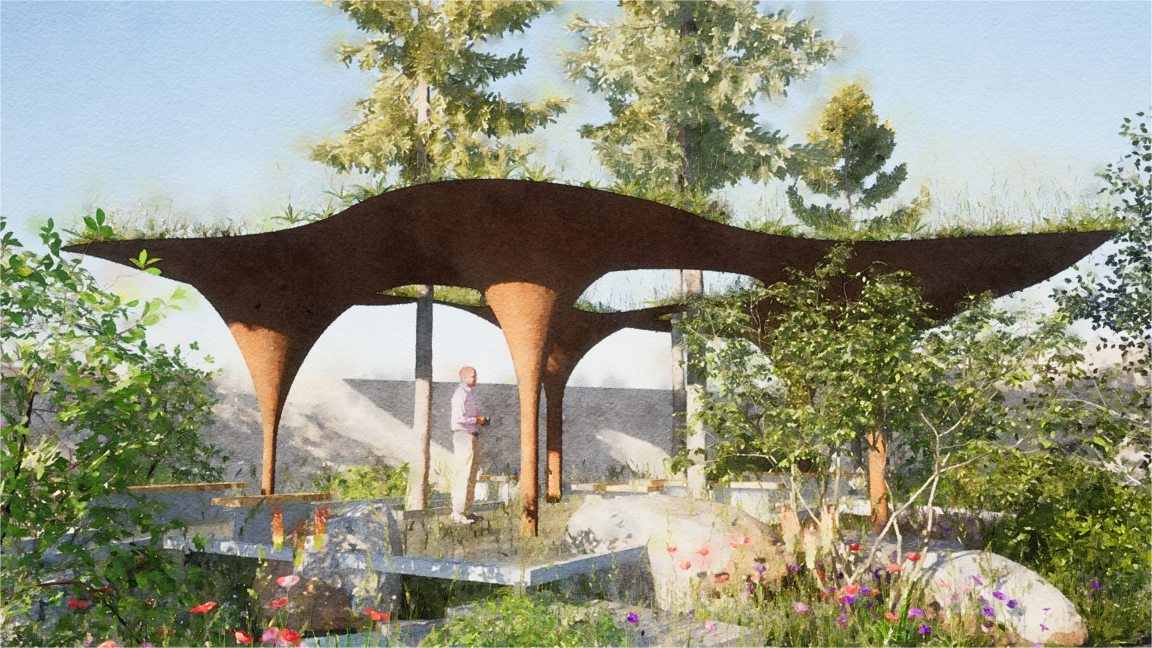
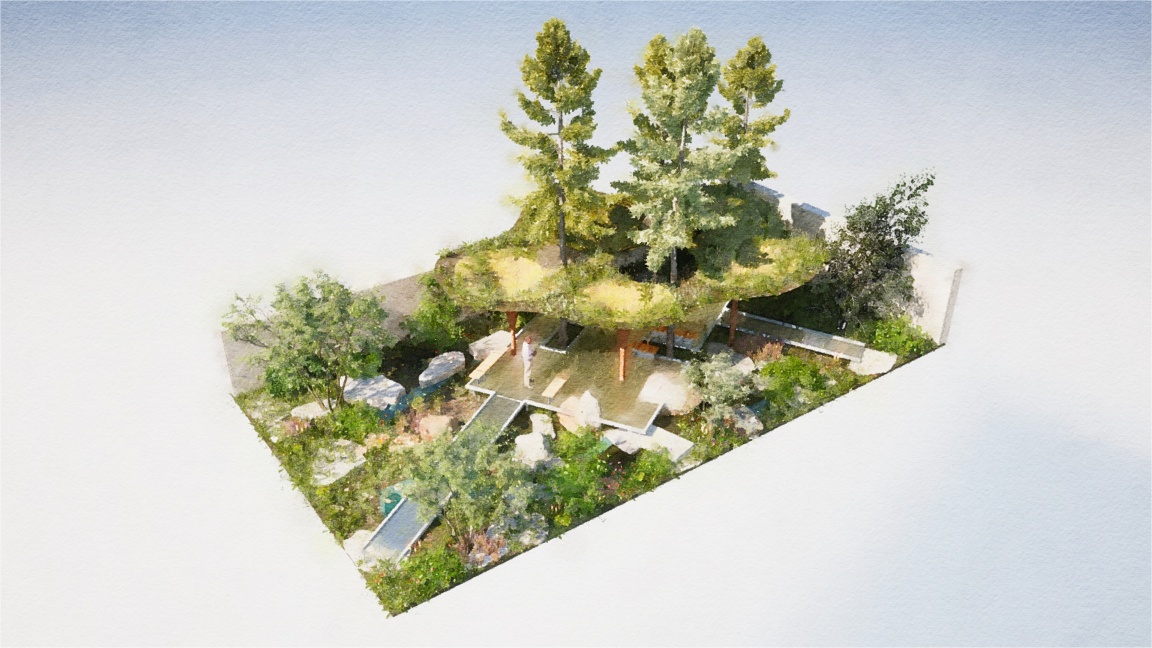
The garden came together with a team of forty two, including structural engineers, metal workers, designers, landscapers, nursery growers and water feature specialists.
It was home to the tallest trees at this year’s show - the Alder trees, which are approximately 16m tall, chosen because of their adaptability to varying weather. Alder wood hardens in water and can survive submerged. The roots have nodules that capture nitrogen improving soil fertility and can absorb toxic heavy metals from the ground, helping to restore waste industrial land.
The garden also featured dozens of unusual plants, including Eriocephalus africanus, which is indigenous to South Africa, and, more common in the UK - the Red Yucca, which is perfect for gardens in the UK with its ability to take extremes of cold whilst at the same time being tolerant of drought conditions means it can readily withstand the harsh British climate and its increasingly extreme and changeable weather.
Following the show, the WaterAid garden has been relocated to a permanent home to inspire a future generation of gardeners about effective rainwater collection and the wise use of water in gardens.


